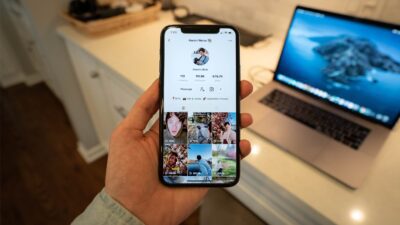Krithika Randhawa

Taking no for an answer: how governments can keep citizens engaged on digital platforms
Planting one million trees is a big job. When the Bundaberg Regional Council decided in 2020 to reduce its carbon footprint, it wanted its 102,000 citizens to have a say in the ambitious scheme.
The council used a digital platform to disseminate real-time information about the ‘One Million Trees’ project, and to collect data from landowners, guiding planting locations for best environmental and economical outcomes.
This kind of digital community engagement, known as “citizen-sourcing”, is on the rise both in Australia and around the world.
Citizen-sourcing needs good digital engagement
Governments increasingly use digital platforms to interact with citizens, co-create services and co-design policies for more sustainable communities and cities. The International Association for Public Participation, whose community engagement framework many national and local governments subscribe to, and the Open Government Partnership, with 76 national members and over 100 local government members, are indicative of growing government efforts to engage with their citizens in a transparent and participatory manner. When designed well, such interaction reduces the distance between government and citizens, strengthens mutual understanding and public trust, and delivers social benefits. Citizen-sourcing can transform how governments engage with citizens, shaping communities for the better.
The City of Unley, one of Australia’s three United Nations designated “Tree Cities of the World”, also wants to include residents in its planning decisions. This South Australian inner metropolitan area has been recognised for its strategic use of a digital platform to crowdsource ideas from citizens to better manage its well-known natural environment, update outdated and ageing infrastructure, and enhance the lifestyle of residents and the local community.
These are two of a growing number of success stories – but how governments and citizens engage on such digital platforms is critical.
For successful citizen-sourcing, the first encounter matters
Our research identified the outcomes of citizen-sourcing are shaped by the intent, strategies, and capabilities of the government. How motivated is the government to obtain feedback from the community? What are their goals and strategies for engaging citizens? What resources are made available to ensure the coherent implementation of the project?
Our recent study of more than 90,000 interactions found that the success of citizen-sourcing depends not just on the one-off participation of citizens, but their continued participation.
Realistically, not all citizen requests can be implemented. How can governments ensure that these citizens continue to contribute?
Using attribution theory, we examined the short and long-term motivations of citizens to engage continuously with government to co-create public infrastructure and services in Austria. Attribution theory clarifies how people interpret events around them, and how this interpretation affects their thinking and behaviour. We analysed 23,249 citizen requests and 71,793 comments by the government and citizens to establish how causal attributions associated with government responses affect the immediate reaction following a request denial, and the longer-term participation of citizens in crowdsourcing platforms.
Our study showed that the first-time experience of citizens is significantly related to future participation behaviour.
A denied request significantly diminishes the likelihood of continued engagement. However, a denial per se is not the only factor. Whether citizens continue to participate depends on the reasons given by the government for the denial, and how citizens categorised these reasons.
Ensuring continued engagement: causality, stability and controllability
We identified three key factors that influence how citizens assess a denied request and, importantly, what consequence this has for their future engagement with the crowdsourcing platform.
The first is where the causality for the denial is located:
- Is the causality internal, and thus in the citizens’ sphere of influence?
- Does the causality lie with the government (for example, resource constraints or different priorities)?
- Is the causality external and the government is not responsible for the request (for instance, when another organisation is responsible)?
We found that if the cause is internal (1) or external (3), the denial does not negatively affect future citizen participation. However, if the locus of causality is with the government (2), future participation is less likely because citizens may not understand why the government does not have the financial resources or organisational capacity to fix pressing issues. Citizens may consider the ranking of priorities as unfair and conclude that the government is not working hard enough to solve their issues.
The second key factor is stability. We observed that if citizens see the reason for the denial as stable over time (for example, legal reasons), their level of platform participation is lower, possibly because they perceive the platform to be ineffective in addressing their needs.
The final factor is controllability, which determines whether an issue can be resolved if the government invests the required effort and resources. Surprisingly, citizens were more likely to continue submitting requests to a crowdsourcing platform if they thought the denied request was controllable. Citizens possibly respect a government decision and accept the denial of a request if they are provided with reasons, such as lack of prioritisation or feasibility/adequacy of a current solution, likely because these reasons help citizens understand the logic behind the decision.
How governments respond to citizens’ requests, especially if they are denied, has a significant influence on whether citizens continue to participate in crowdsourcing and therefore in the co-creation of public infrastructure and services towards developing sustainable cities and communities.
When governments offer transparent responses to citizen requests on crowdsourcing platforms, they are more likely to be rewarded with continued citizen participation.
Getting it right the first time
Governments should be strategic about how they design denials, using them to signal their interest in receiving citizen feedback and building a relationship with their citizens. It’s critical to manage the human side of digital platforms – and personalised communication is essential. As we identified in earlier studies, crowdsourcing platforms offer more than technological capabilities; they are an opportunity for government to engage in knowledge collaboration and human co-creation with citizens, as well as to foster a sense of community identity through participation and contribution to projects.
Governments should focus on how they respond to user input and be transparent about it. If a government organisation is not responsible for a request, it should tell the citizen which organisation is. Governments should take the time to provide information about responsibilities and educate their citizens about the government’s scope of influence.
Our study highlights the importance of a transparent approach to request denials in citizen-sourcing. Governments can encourage continued participation in citizen-sourcing by offering residents clear reasons for a denied request in terms of locus of causality, stability and controllability. When people understand why their ‘good’ suggestion has been rejected, they will retain confidence in citizen-sourcing engagements in the future.
Krithika Randhawa (University of Sydney) together with Lisa Schmidthuber (Vienna University of Economics and Business) and Dennis Hilgers (Johannes Kepler University) recently published a paper entitled “Public Crowdsourcing: Analyzing the Role of Government Feedback on Civic Digital Platforms.”
Image: Anna Hunko
Krithika is an Associate Professor of Strategy, Innovation and Entrepreneurship at the University of Sydney Business School. She specialises in open innovation, a novel way for organisations to innovate by collaborating with external stakeholders.
Share
We believe in open and honest access to knowledge.
We use a Creative Commons Attribution NoDerivatives licence for our articles and podcasts, so you can republish them for free, online or in print.







